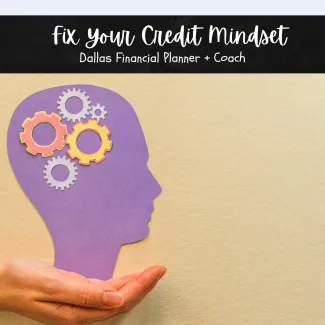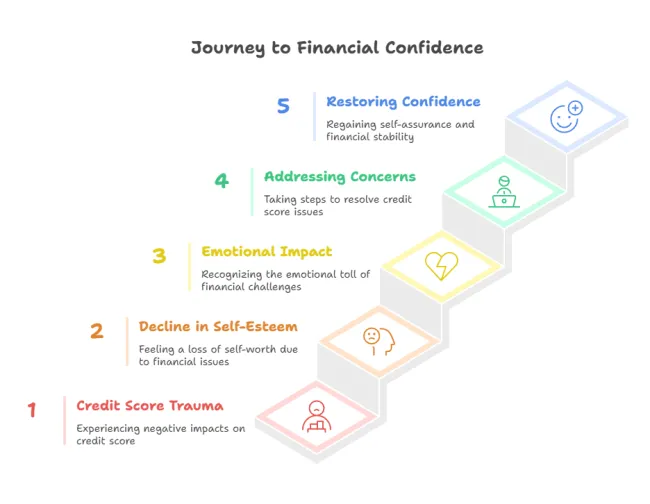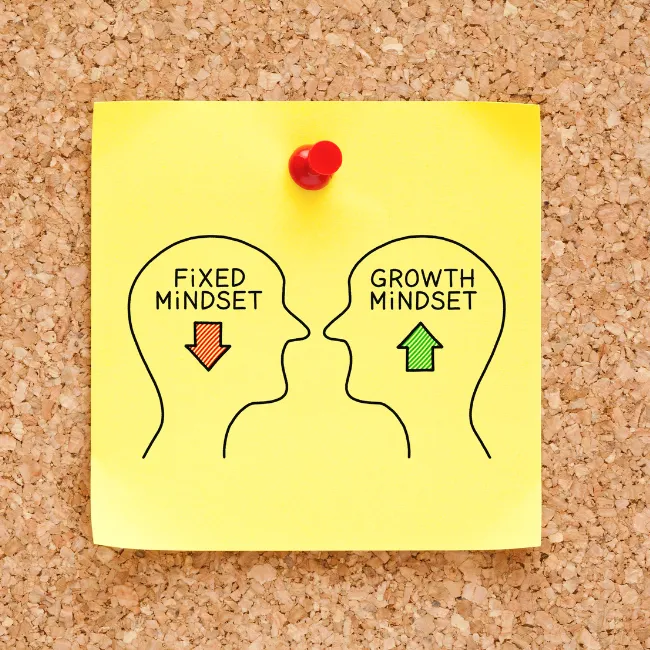
How Your Mindset Affects Your Credit: Rebuilding More Than Just a Score
In Dallas, credit isn’t just about your FICO score—it’s about access, opportunity, and dignity. Yet, for so many, that three-digit number reflects more pain than planning. And here's what no one tells you: fixing your credit starts in your mind, not your mailbox. As a Certified Financial Planner™, financial educator, and author of Future-Focused Wealth, I’ve worked with clients who had every financial tool—and still struggled with credit. Not because they lacked knowledge, but because they were carrying emotional debt.
At Future-Focused Wealth, we approach credit repair planning differently. Together with Jason Lackey, a behavior-focused financial coaching, we help you rewrite your story—financially and emotionally.
The Hidden Psychology Behind Poor Credit
If you’ve ever ignored a credit notice or felt physically sick checking your score, you’re not alone. We’ve seen this across all income levels.
Poor credit often comes from:
- Generational beliefs like “Credit is dangerous” or “Only debt gets things done.”
- Scarcity mindset: Using credit to survive vs. build
- Emotional spending: Buying to feel worthy, safe, or distracted
- Shame spirals: "I messed up again. I’ll deal with it later.”
Credit trauma is real—and it's invisible to credit bureaus.
Client Snapshot: The Power of a Mindset Shift
A single mom in Arlington came to us with a 520 credit score and unopened statements. She wasn't “bad with money.” She was burned out from years of survival mode.
Together, we:
- Built a safe-to-spend plan
- Automated one bill
- Set up a secured credit card
Six months later, her score jumped 150 points, and she pre-qualified for a home loan.
Credit Mindset Reset Checklist
✅ I check my credit score monthly
✅ I talk about money without shame
✅ I’ve automated at least one payment
✅ I’ve forgiven my financial past
✅ I know credit is a tool, not a threat
Shift #1: From Shame to Strategy
Instead of:
“I’m so irresponsible. I ruined my score.”
Try:
“I used credit to survive, and now I’m learning to use it to grow.”
This mindset shift is where healing starts. That’s where coaching with Jason Lackey can change everything.
Shift #2: From Avoidance to Awareness
Avoiding your credit monitoring report won’t make it go away—but clarity builds control.
Start with:
You can’t fix what you won’t face. But once you face it—you take back power.
Shift #3: From Crash Fixes to Credit Habits
Think of your credit like a muscle—not a crisis.
💳 Try these micro-habits:
- Set autopay for at least the minimum
- Use a secured card for fixed expenses
- Don’t close old accounts unless advised
- Celebrate behavior, not just score increases
Sustainable change comes from strategy, not shame.
Why Credit Requires a Team: Planner + Coach = Real Results
Rebuilding credit takes two lanes:
Together, we’re not just fixing numbers—we’re rebuilding your relationship with money.
Take Your First 3 Steps Now:
- Book a call with Melissa or Jason
- Download the Emergency Fund Tracker
- Read Chapter 7 of Future-Focused Wealth
Rebuilding More Than Just a Score
Your credit score is a reflection of your past—but it doesn't have to dictate your future. When you shift your mindset, align with the right team, and take consistent action, you stop chasing approval and start building power.
You're not just repairing credit.
You're rebuilding confidence.
And you don't have to do it alone.
FAQs About Credit & Mindset
Q: What is a credit mindset?
A credit mindset is the set of beliefs, emotions, and behaviors that influence how you use and manage credit. It affects your spending, repayment, and how you emotionally respond to your score.
Q: Can a coach really help my credit?
Yes. Coaches help with consistency, confidence, and overcoming fear-based financial behaviors—the real reason credit strategies often fail.
Q: How fast can I rebuild my credit?
A. We’ve seen major improvements in as little as 90 days when the right mindset + plan are in place.



